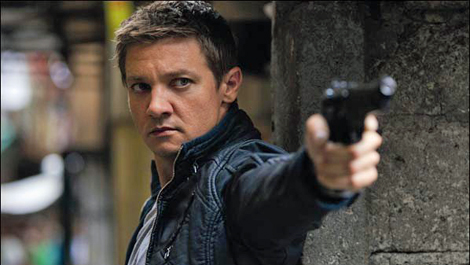Why you can trust GamesRadar+
28 Weeks Later. Predator 2. xXx: State Of The Union . Just a few of the pictures that have tried to perpetuate a franchise without their original stars on board.
To their number we can now add The Bourne Legacy , a continuation of the Robert Ludlum-inspired spy series without Matt Damon’s amnesiac assassin as its focal point.
To some it will be like Hamlet without Hamlet. Yet while Tony Gilroy’s fourquel never feels particularly vital, it’s certainly not the cynical cash-grab we might’ve feared.
For one thing it has Jeremy Renner, capably inheriting Damon’s mantle as another secret agent who finds himself at odds with his shadowy superiors.
Introduced as a full-bearded mountain man on a training outing in Alaska, Renner’s Aaron Cross soon proves himself to be a force to be reckoned with whether dealing with freezing water, snarling wolves or an automated drone plane.
He’s also no slouch on a motorbike, a climactic chase through the streets of Manila giving second unit director Dan Bradley (a Bourne veteran) another chance to run riot in a teeming urban environment.
This thrilling set-piece isn’t the only Bourne signifier. Like Doug Liman and Paul Greengrass before him, Gilroy juxtaposes action in the field with testy scenes at Espionage HQ, here with Ed Norton and Stacy Keach as government suits battling to contain the “infection” that Jason Bourne’s exploits have let loose.
Fleeting cameos from Scott Glenn, David Strathairn and Albert Finney further assist the movie’s aim to be a logical extension of a pre-established universe. The result is it’s surprisingly easy to see Legacy as a parallel adventure, allied to yet not reliant on what’s gone before.
But for all Renner’s swagger and physical dexterity, his hounded hero simply isn’t as compelling a protagonist as Damon’s Jason.
Robbed of his memory and sense of self, the latter’s quest to uncover his nature gave the original trilogy an almost existential element as Bourne strived to reconcile the man he was with who he hoped to be.
Aaron’s problem is more pedestrian: a chemical dependency on the ‘meds’ that make him quicker, stronger and brainier.
Teaming up with Rachel Weisz’s lab technician, Renner effectively conveys sweaty desperation as he races to get the pills on which his life depends.
Yet because he’s essentially a junkie after a fix, he’s a hard man to warm to in a film that, without a human connection, feels noticeably cold to the touch.
Neil Smith is a freelance film critic who has written for several publications, including Total Film. His bylines can be found at the BBC, Film 4 Independent, Uncut Magazine, SFX, Heat Magazine, Popcorn, and more.



